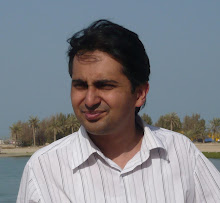Sajjad was arguably the finest tabla accompanist in Pakistan following the death of Ustad Shaukat Hussain Khan and the migration of Ustad Tari Khan and Ustad Ghulam Abbas to the United States. Being born and raised in a renowned musical family, Sajjad received his initial training from his father, Ustad Ashiq Ali Khan, and later became the disciple of the illustrious Ustad Shaukat Hussain Khan. Natural talent, dedication and the added benefit of guidance from a legendary master were conducive in fully realising his musical potential and emerge amongst the most talented musicians of South Asia.
The main qualities in Sajjad’s tabla playing were an impeccable balanced tone, an understanding of the requirements of the main performing artiste, and most important of all, he possessed the essential attribute epitomising all great musicians of the Punjab, ‘ruhdaari’. Ruhdaari, loosely denoted as improvisatory ability cannot be taught but is inherent from birth. Sajjad was blessed with ruhdaari in abundance. His performances were marked by constant improvisation and a sense of freshness. The theka embellished with subtle flourishes, the laggi perfectly executed and total command over an intricate tihai. He had the rare ability to add life to the performance of even a mediocre artist.
There were three major influences identified with Sajjad’s tabla playing; Ustad Shaukat Hussain Khan, Ustad Tari Khan and Ustad Zakir Hussain. He showed great reverence to the above and would often be heard giving endless praise. Tari saheb in particular was considered Sajjad's role model and he spent a considerable period under his tutelage.
Those who knew Sajjad were enamoured by his friendly personality, humble nature and a wonderful sense of humour. I vividly remember being dazzled as an impressionable teenager by his performances on PTV during the late 80s, a time when he was dubbed as the “junior Tari Khan”. It was not until 2001, I heard him live for the first time during his tour to the UK with Ustad Ghulam Hassan Shaggan. His accompaniment was as usual outstanding, but what grabbed me was his restraint and sensitive approach in accompanying the principal musician, Ustad Shaggan, a staunch veteran of the Gwalior gharana. His impeccable performance to Shaggan saheb’s rendition of Raag Purvi at the Noor Jehan Centre is afresh in my memory.
Apart from his prowess over accompaniment, Sajjad was an accomplished soloist in his own right. His solo performances clearly highlighted his training under Ustad Shaukat Hussain Khan and Ustad Tari Khan. There were many occasions during Barsis or musical gatherings at the shrines of Sehwan Sharif and Bari Imaam where Sajjad's performances have said to have overshadowed even the most recognised of tabla soloists.
Two solo performances which clearly stand out for me on a personal note and highlight Sajjad's potential, date back to 2004 when he gave a series of performances at my residence in Lahore. The first solo was a mehfil in which he accompanied his talented nephew, ghazal singer Shahzad Ali Khan and the duo of Chand Khan - Suraj Khan. He delighted us with a 45 minute solo. The next day was a scheduled mehfil with a leading classical vocalist, however the vocalist cancelled at the last minute, Sajjad requested to have another mehfil of solo tabla. I hesitantly agreed due to having only heard him the previous evening, thinking he would more or less play the same material. However to my surprise, the solos in Teentaal and Roopak on that afternoon surpassed the performance of the previous day in terms of both quality and content.
His perfectionist nature and devotion to tabla was evident in my final meeting with him in June 2008 at tabla maker Qaiser Hussain's shop in Lahore. He had performed a wonderful solo the previous evening. After I praised his performance, he said 'Saqib bhai, I wasn't happy with yesterday's performance. I want to re-record lengthy solos for you in Matt Taal and Jhap Taal without any fee'. Unfortunately that session never took place.
The greatest tragedy is we never got to see how this potentially great tabla player would have been in his prime. Taken away from us at the young age of 41, the loss of Sajjad Ali is nothing short of a disaster. In a country devoid of genuine musical talent, the loss for Pakistan and music lovers is unaccountable. He leaves behind a widow and two young sons. Sajjad bhai, you shall be forever missed.
Innah Lillah Wa Ina Elayhay Rajioun.





